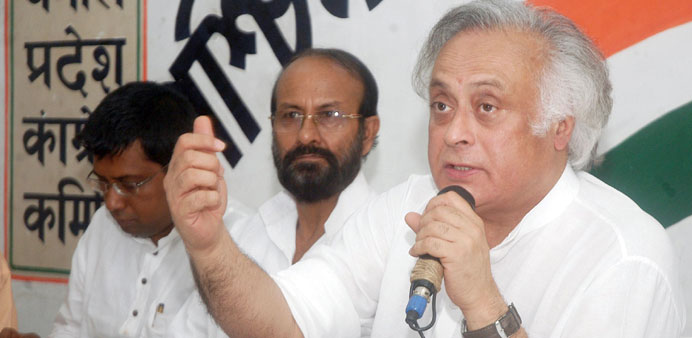IANS/New Delhi
Seventy-two percent of people feel satisfied with the performance of Prime Minister Narendra Modi, according to a survey on one year of his government, but the majority also sees no let-up in graft, and there is more opposition than support for his controversial land acquisition bill.
For a majority of the 20,000 people polled in 23 states, across 155 districts, with a 70:30 rural-urban spread, the main reason for satisfaction has been overall development, skilful governance and lower prices.
The results of the survey conducted by Axis My India for IBN Network/#Modi365 were released on the eve of the government completing one year in office.
The reactions of people in the survey also dwelt upon the policies being pursued by the prime minister, and over 35% did not support the controversial land acquisition bill, an equal number were undecided and only 28% supported the legislation.
On corruption, which was a major electoral plank for the Bharatiya Janata Party in the run-up to the elections last year, more than 60% of the people polled felt the levels have either increased or seen no improvement, and just 12% agreed that graft has declined.
According to the survey, 56% of the people felt Modi was fast and effective as prime minister, an overwhelming 85% endorsed Swachch Bharat, the clean India campaign, as his best initiative, and 76% listed his Jan Dhan Yojana as the second best.
For his two other initiatives, Make In India received the support of 43% people and Digital India got the approval of 42%.
Reactions also came on some of the controversies that hit the government and the ruling party during the past year.
Some 34% of the people felt statements on “ghar vapsi”, or re-conversion, dented the Modi government’s image, 32% felt it had no impact, and nearly 35% were undecided on it.
Similarly, over 43% wanted Modi to rein in his cabinet colleagues who have made it a habit to make controversial statements, and only 26% disagreed with the view.
There also appeared to be no clarity in the interference from the Rashtriya Swayamsevak Sangh in the functioning of the government.
The RSS is the ideological parent of the ruling party of which Modi has been a staunch member.
Some 32% felt there was RSS intrusion, an equal number disagreed and 35% were undecided.
Then the question: How is Modi as prime minister? Nearly 57% opted for effective and fast, 15% for ineffective and slow, 2.6% for no willpower, 3.7% for not so strict, 6.1% for clean image but not a good administrator, and 13.5% for less work, more talk.
Regarding the individual’s economic improvement during the year, while 42% of respondents felt there was “better improvement”, a little over 5.5% felt their condition has worsened.
The percentages were similar for perceptions about the overall economic condition of the nation. Over 43% felt there was “better improvement” and over 20% thought there was very good improvement.
Meanwhile, industry body Assocham said it expects further reform initiatives in the next two quarters along with more attention to the rural economy.
“Having taken several initiatives to unclog infrastructure projects and improve ease of doing business, Modi’s government is expected to give increased attention to the rural economy, although several of the financial inclusion programmes like the Jan Dhan Yojana would help the countryside,” Associated Chambers of Commerce of India president Rana Kapoor said in a statement.
He said there are select sectors of the economy which are under stress, including housing, real estate, banking and telecom.
Merchandise exports are also causing some anxiety of late with slowdown in global demand, he added.
“Some of the innovative initiatives like monetisation of gold would bring in much-needed stability in the country’s balance of payment by way of reduction in gold imports. Besides, there are hopes that the GST (Goods and Services Tax) Bill would finally move towards a law,” Kapoor said.

Congress leader Jairam Ramesh addresses a press conference in Kolkata yesterday.
